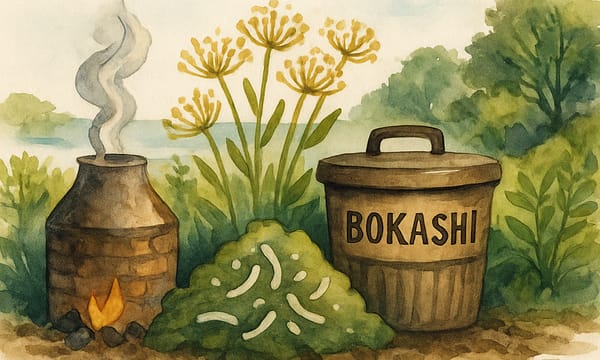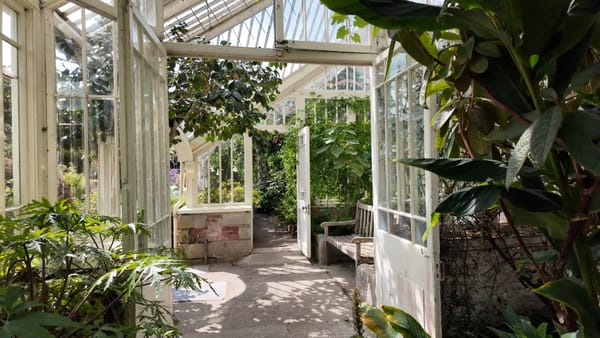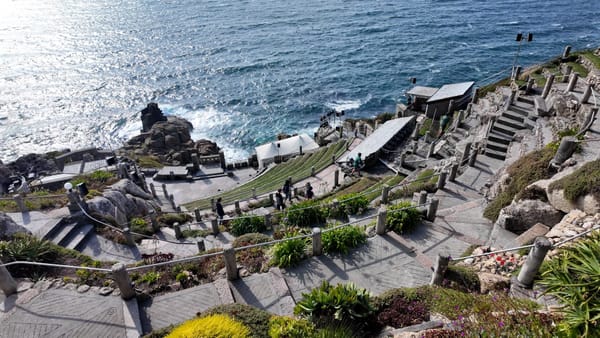Along Cornwall’s salt-laced hedgerows and down into the sandy folds of its coastal gardens, something quietly radical is happening. While compost heaps steam and seaweed still gathers along stone-bordered beds, a new generation of soil-makers are experimenting—blending old-world wisdom with bold, regenerative ideas. These aren’t just gardeners. They’re citizen scientists, herbal chemists, soil whisperers. And their tools? Blackened charcoal, fermented food scraps, living mulches, and wild ferments. Welcome to the new frontier of Cornish fertility.
It begins with fire. Or rather, with a burn that isn’t quite fire at all. In back gardens and allotments across the Duchy, gardeners are making biochar—a charcoal-like soil enhancer created by heating hedge clippings or prunings in low oxygen. The result is porous, carbon-rich, and strangely beautiful: feather-light and full of microscopic cavities. Biochar’s power lies in its ability to hold water, house microbes, and sequester carbon deep in the earth. It’s not a quick fix, but a legacy layer. “Like seasoning a pan,” one grower described it. Charged with compost or seaweed tea, it slips into sandy soil and transforms it—holding onto moisture and nutrients through drought and downpour alike.
Then there’s the bucket in the corner of the shed, quietly fermenting. Bokashi—a Japanese method of fermenting food waste with microbial-rich bran—has caught on in Cornwall’s wetter climate. It makes composting possible even in flats or gardens the size of a table. Cooked food, dairy, even small bones—all tucked away in a sealed tub that turns kitchen scraps into a tangy, pre-composted mass within weeks. Once buried, this bokashi treasure acts like an inoculant, kickstarting decomposition and energising the microbiome of tired soils. Gardeners report richer tilth, fewer pests, and a visible liveliness returning to the earth.
But Cornwall’s soil revolution doesn’t end there. Some are sowing living mulches—like clover and phacelia—to protect and nourish the ground between crops. Others are dabbling in Korean Natural Farming, brewing fermented nettle tea in rain barrels, or collecting leaf litter from ancient woods to bring the forest floor’s wisdom into raised beds. There’s a sense of experimentation, of making gardening a little more alchemical.
What unites these approaches is a deep respect for soil as a living system. Not just a medium for growth, but a dynamic, breathing organism. In this spirit, many gardeners are layering their techniques—pairing seaweed with biochar, or adding bokashi to compost that’s already teeming with worms. It's not prescriptive. It’s adaptive. Soil as ecosystem, not factory.
Local trials—from community plots to partnerships with research institutes—are beginning to validate what Cornish gardeners have sensed all along: that these methods work, and work especially well here. The sandy, sometimes depleted soils of the region respond to this layered, microbial approach. The rain, while challenging, becomes an ally when nutrients are better held in place. Crops emerge hardier. Beds stay fertile longer.
And so, in a greenhouse in Porthleven, or beside a drystone wall near Padstow, something essential is shifting. The tools may be unconventional—a barrel of charred sticks, a sealed fermenting tub—but the outcome is ancient: lush soil, vibrant plants, and a garden that gives more than it takes.
In this new age of Cornish gardening, the future isn’t factory-made. It’s fermenting in your shed. It’s layered under your mulch. It smells faintly of seaweed and woodsmoke. And it’s alive.








